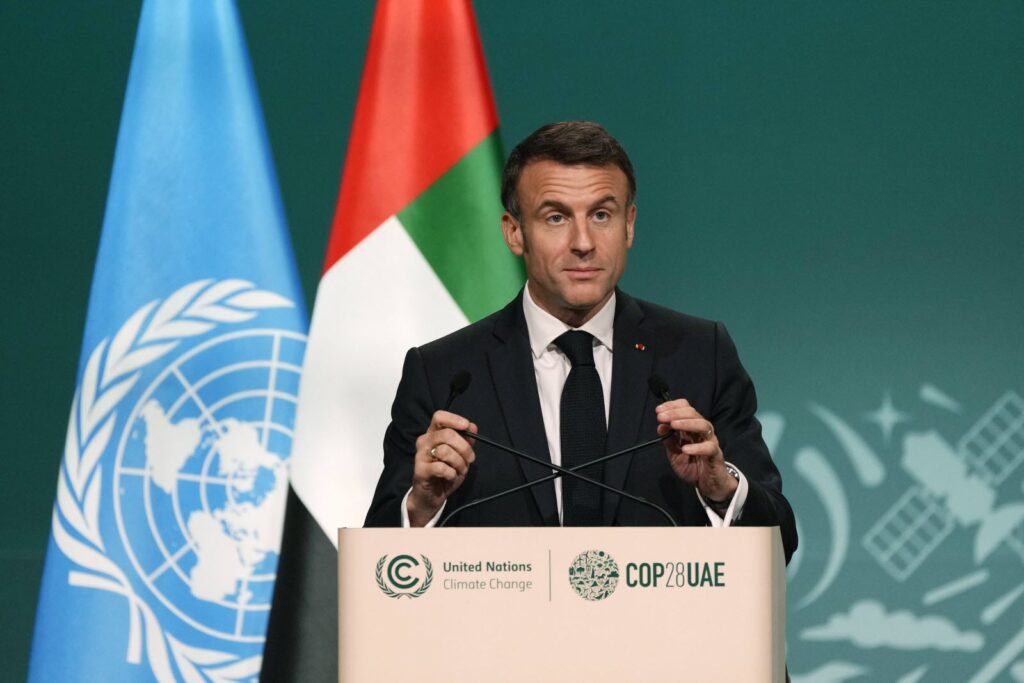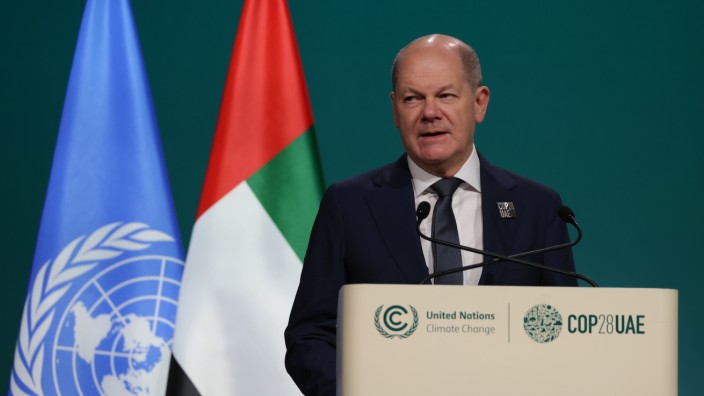During this sequence, the Heads of State and Government of 150 Parties to the UNFCCC (out of 197) participated according to their schedules. The absence of the leaders of the world’s two largest emitting countries, President Xi Jinping of China and President Joe Biden of the United States, as well as the absence of the Prime Minister of Australia, Anthony Albanese, was notable. On December 1st, a video message from China’s Vice Premier, Xuexiang Ding, was broadcasted. Concerning the United States, Vice President Kamala Harris addressed the assembly on December 2nd. Among the influential leaders present, in addition to Emmanuel Macron, were Mia Mottley, the Prime Minister of Barbados, Narendra Modi, the Prime Minister of India, William Ruto, the President of Kenya, and Lula Da Silva, the President of Brazil.
These speeches provided an opportunity for world leaders to present national climate policies, directly witness the impacts of climate change, commit to providing financial support, and criticize or point fingers at countries that have not fulfilled their previous commitments.The purpose of this high-level sequence, with the presence of these global leaders, was primarily to give a strong political impetus before the start of negotiations on various agenda items for COP-28, CMA-5, CMP-18, SBI-59, and SBSTA-59.

A PANORAMIC VIEW BY EUROPEAN COOPERATION SYSTEM
Several high-level events on topics such as mountains and health took place throughout the day. Negotiations continued on key issues, including the Global Stocktake, the work program to enhance ambition and implementation in mitigation (MWP), and financing.Apart from formal negotiations or informal consultations on key topics, this third day saw a proliferation of announcements and voluntary statements from states, particularly during the high-level segment, in terms of climate-energy commitments, financing, and the establishment of coalitions.
The initial recommendations from the High-Level Roundtable on the conclusions of the GST on implementation means.
Among the key announcements or statements made during this roundtable:
1 – President Miguel Díaz-Canel of Cuba advocated for making the GST a means to promote more support for developing countries.
2 – German Chancellor Olaf Scholz emphasized the importance of increasing financing and the need to continue attracting private capital.
3 – Prime Minister Mia Mottley of Barbados urged non-state actors, including insurance companies, to play a role in establishing financing mechanisms for adaptation.
4 – Prime Minister Mark Brown of the Cook Islands denounced the failure of developed countries to meet their climate financing commitments (the goal of $100 billion per year from 2020).
5 – Pakistani Prime Minister Anwaar-ul-Haq Kakar discussed the significant losses and damages suffered by his country, highlighting that the financing deficit will continue to grow to reach billions of dollars each year by 2050.
6 – President Alain Berset of Switzerland emphasized that only this first GST is capable of keeping the world within the +1.5°C limit. He underscored the national challenge of increasing climate financing, while other countries with higher GDP and emissions do not contribute.
7 – Irish Prime Minister Leo Varadkar highlighted that those facing the greatest climate risks also encounter the most significant obstacles in accessing financing.
8 – Vice Premier Minister Salah Ahmed Jama of Somalia explained that Somalia will need about $4 billion in climate financing over the next six years, but certain aggravating factors, such as the immense debt burden, mean that it will ultimately receive only $300 million.
9 – Egyptian Minister of Environment Yasmine Fouad highlighted the deficit in adaptation financing, encouraging the use of new financing mechanisms





